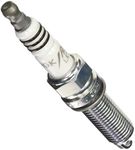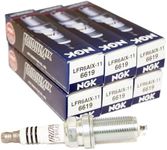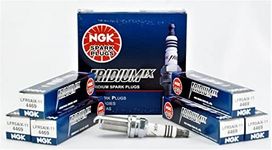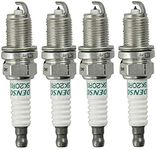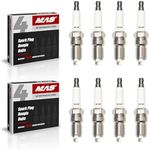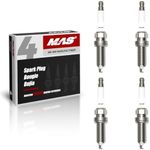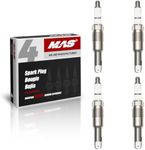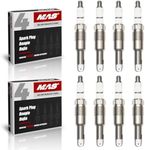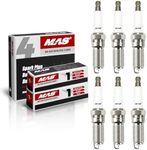Buying Guide for the Best Performance Spark Plugs
Choosing the right performance spark plugs for your vehicle can significantly enhance its efficiency, power, and overall performance. Spark plugs are crucial components in your engine's ignition system, responsible for igniting the air-fuel mixture in the combustion chamber. When selecting performance spark plugs, it's essential to consider several key specifications to ensure they meet your vehicle's requirements and your driving needs.MaterialThe material of the spark plug's electrode affects its performance and longevity. Common materials include copper, platinum, and iridium. Copper spark plugs are affordable and provide good performance but have a shorter lifespan. Platinum spark plugs last longer and offer better performance than copper. Iridium spark plugs are the most durable and provide the best performance, making them ideal for high-performance engines. Choose the material based on your driving habits and how often you want to replace your spark plugs.
Heat RangeThe heat range of a spark plug indicates its ability to dissipate heat from the combustion chamber. A 'hot' spark plug retains more heat, while a 'cold' spark plug dissipates heat more quickly. The right heat range depends on your engine's design and operating conditions. For high-performance or modified engines, a colder plug may be necessary to prevent overheating and pre-ignition. For standard engines, a hotter plug might be suitable to ensure proper combustion. Refer to your vehicle's manual or consult with a professional to determine the appropriate heat range.
Gap SizeThe gap size is the distance between the center and ground electrodes of the spark plug. This gap affects the spark's intensity and the engine's performance. A larger gap can provide a stronger spark, improving combustion and power, but it requires a stronger ignition system. A smaller gap is easier for the ignition system to handle but may not provide as strong a spark. Check your vehicle's specifications for the recommended gap size and adjust accordingly to match your engine's needs.
Resistor TypeResistor spark plugs help reduce electromagnetic interference (EMI) that can affect your vehicle's electronic systems. Non-resistor plugs are typically used in older vehicles or racing applications where EMI is less of a concern. If your vehicle has modern electronic systems, it's advisable to use resistor spark plugs to prevent potential interference. Consider your vehicle's age and electronic complexity when choosing between resistor and non-resistor spark plugs.
Thread Size and ReachThread size and reach refer to the dimensions of the spark plug that determine how it fits into the engine. The thread size must match the engine's spark plug hole, and the reach must be appropriate to ensure the plug sits correctly in the combustion chamber. Using the wrong size can lead to poor performance or engine damage. Always refer to your vehicle's manual or consult with a professional to ensure you select the correct thread size and reach for your engine.

